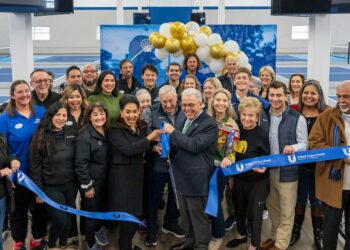Discussing nutrition with members isn’t the easiest task in the world. Nutrition is a very personal topic for most people, and you can’t always judge for whom it is more personal by looking at someone. Making assumptions is never a good thing to do.
As fitness professionals, it is within our scope of practice to touch on topics of nutrition depending on our role and relationship with a member. Trainers have some latitude in these conversations and certainly have the most opportunity one on one. However, ethically they have restrictions on providing menus and specific diet plans.
Nutritionists have more freedom in what can be discussed and the kind of information that can be shared, but they are also bound by a Code of Ethics requiring strict confidentiality. Therefore, some clients may feel more comfortable opening up about their eating habits than others. Members may also prefer to ask food questions to someone whose expertise is specifically in that area.
More frequently, members never ask questions and don’t realize how significant the role nutrition plays in their health and fitness outcomes. In a gym, it seems much more important for us to learn how to use the equipment than for staff to tell us how to eat when we get home!
Is it time for an intervention? I think so! As a trainer myself, I know how frustrating it can be to have a client work hard and not see the results the client is hoping for because he/she is not accepting the nutrition advice you are offering. Especially when you are the nutritionist!
My solution is to create a club consciousness of whole-body-health through nutrition education. And it begins with small changes. We know that change can be a detested word for some people, so it is imperative to make nutrition information accessible and non-threatening.
For those unwilling at first to attend classes, I would suggest having club activities that raise awareness about healthy habits, such as a “More Water Day.” It would be ideal to have a bulletin board on which the club and members could post “fit food tips” or recipes.
Additionally, more structured nutrition workshops that are fun and educational can engage members in learning easy and doable strategies for healthy eating. The word-of-mouth from members who do attend towards those who may be reluctant to listen, should encourage greater participation as time goes on.
Once the members feel it is an integral part of the club environment to offer resources and support about nutrition, the conversation grows out of a friendly exchange of ideas between the members themselves as well as the club they patronize to get them physically fit.
What nutrition conversations are you comfortable having? How approachable are you for a member with questions?
Judith Samuels, M.A. is a certified nutrition and wellness consultant and master personal trainer at Sport&Health Clubs in the Washington D.C. Metro Area. She can be reached via e-mail at judi@judisamuels.com.








